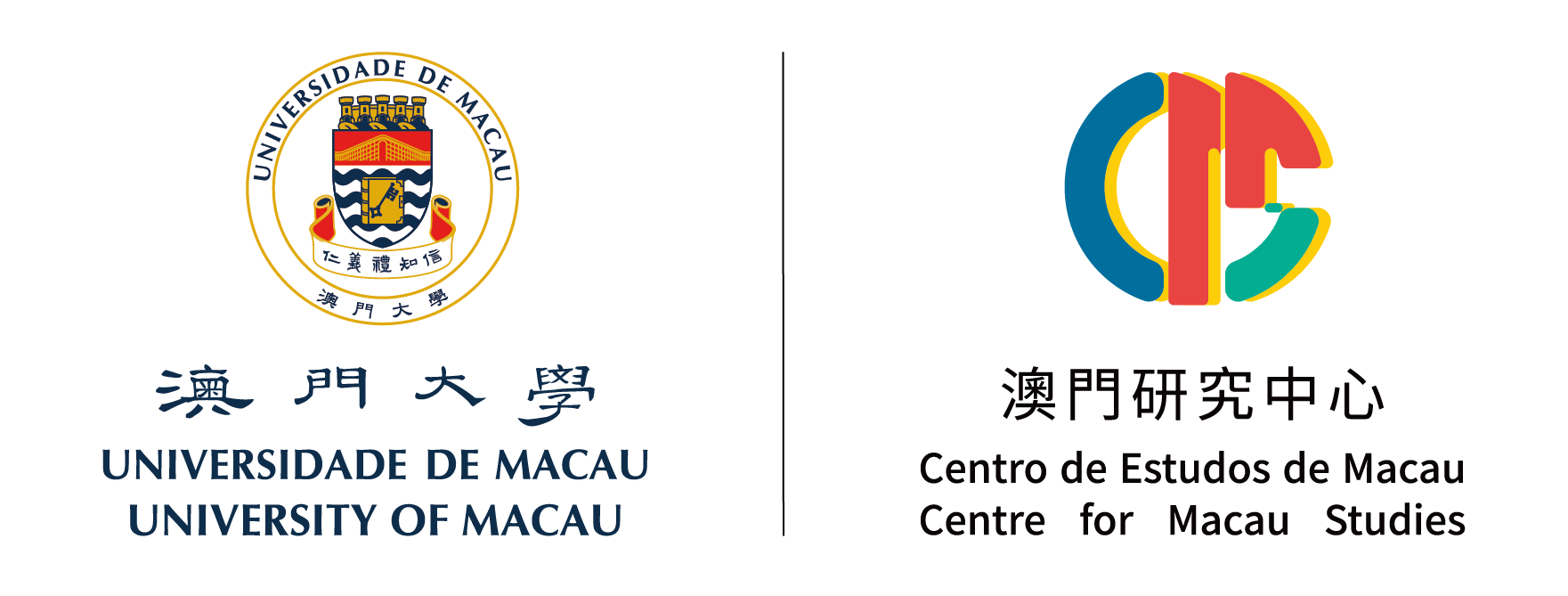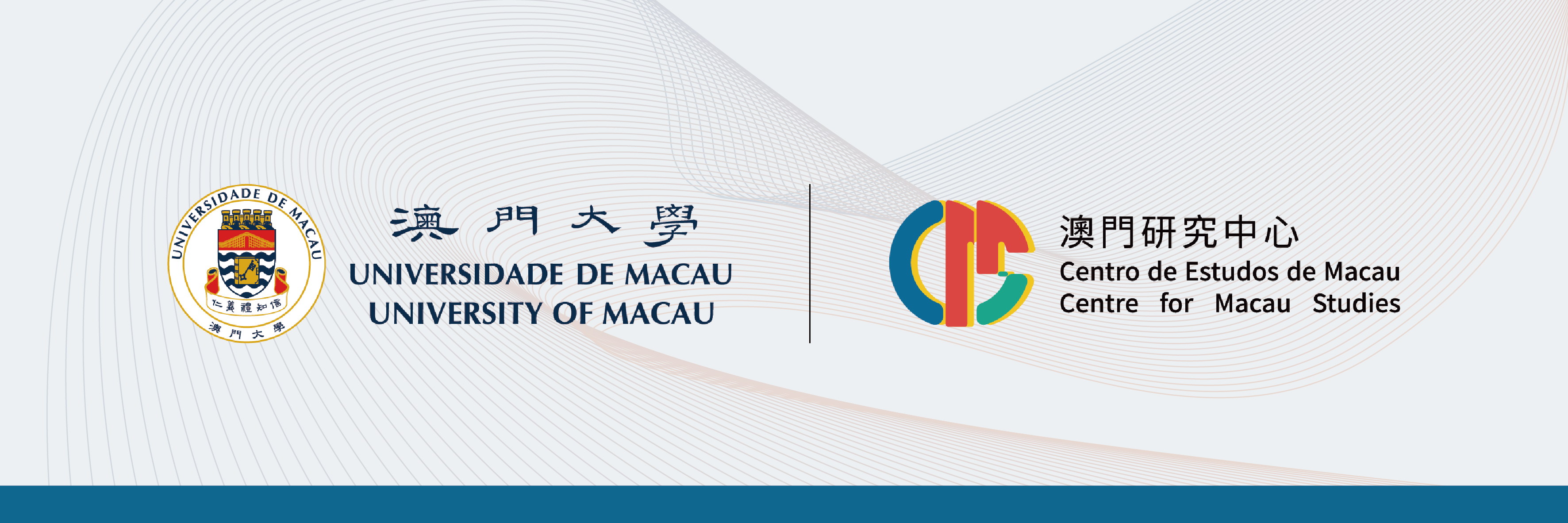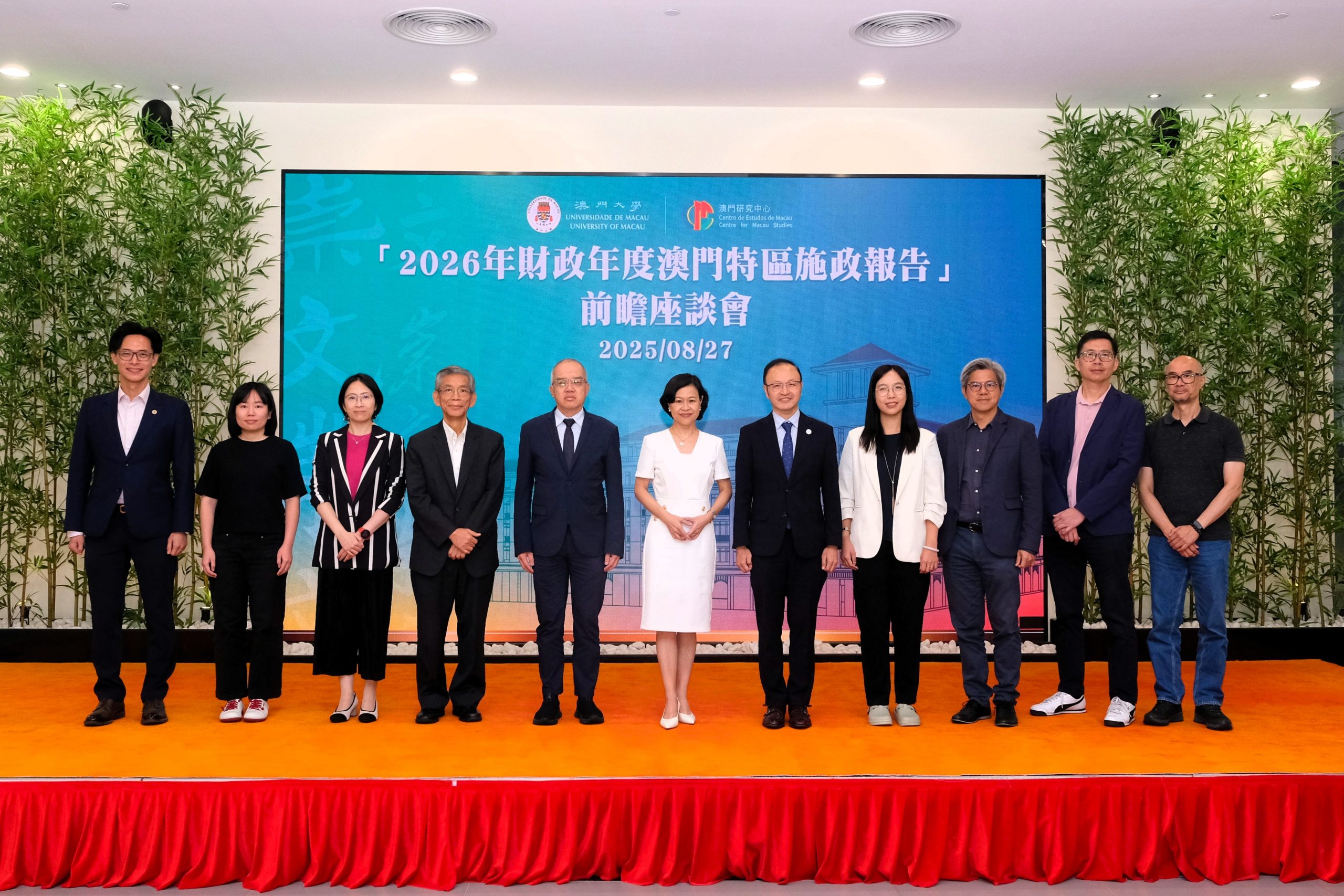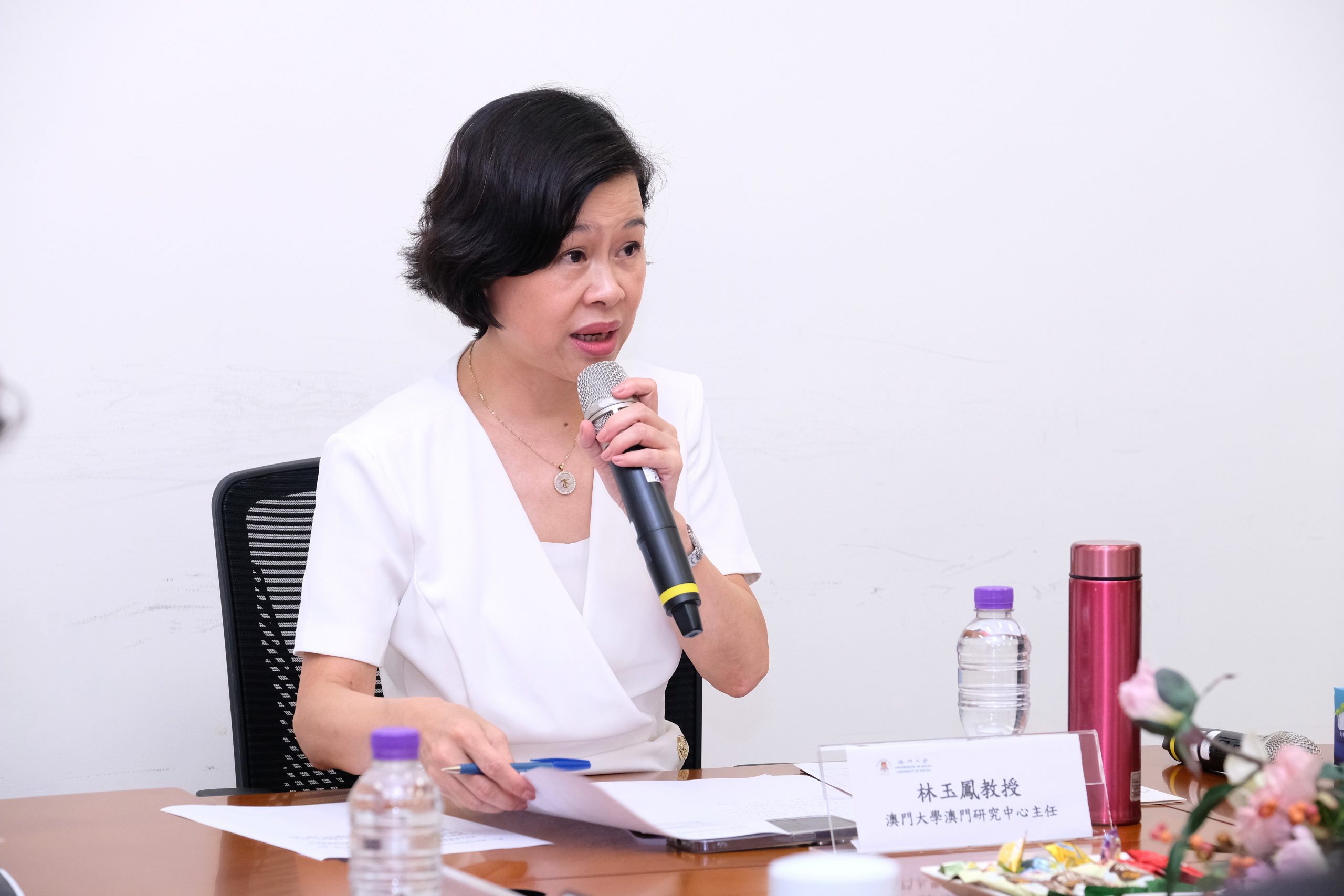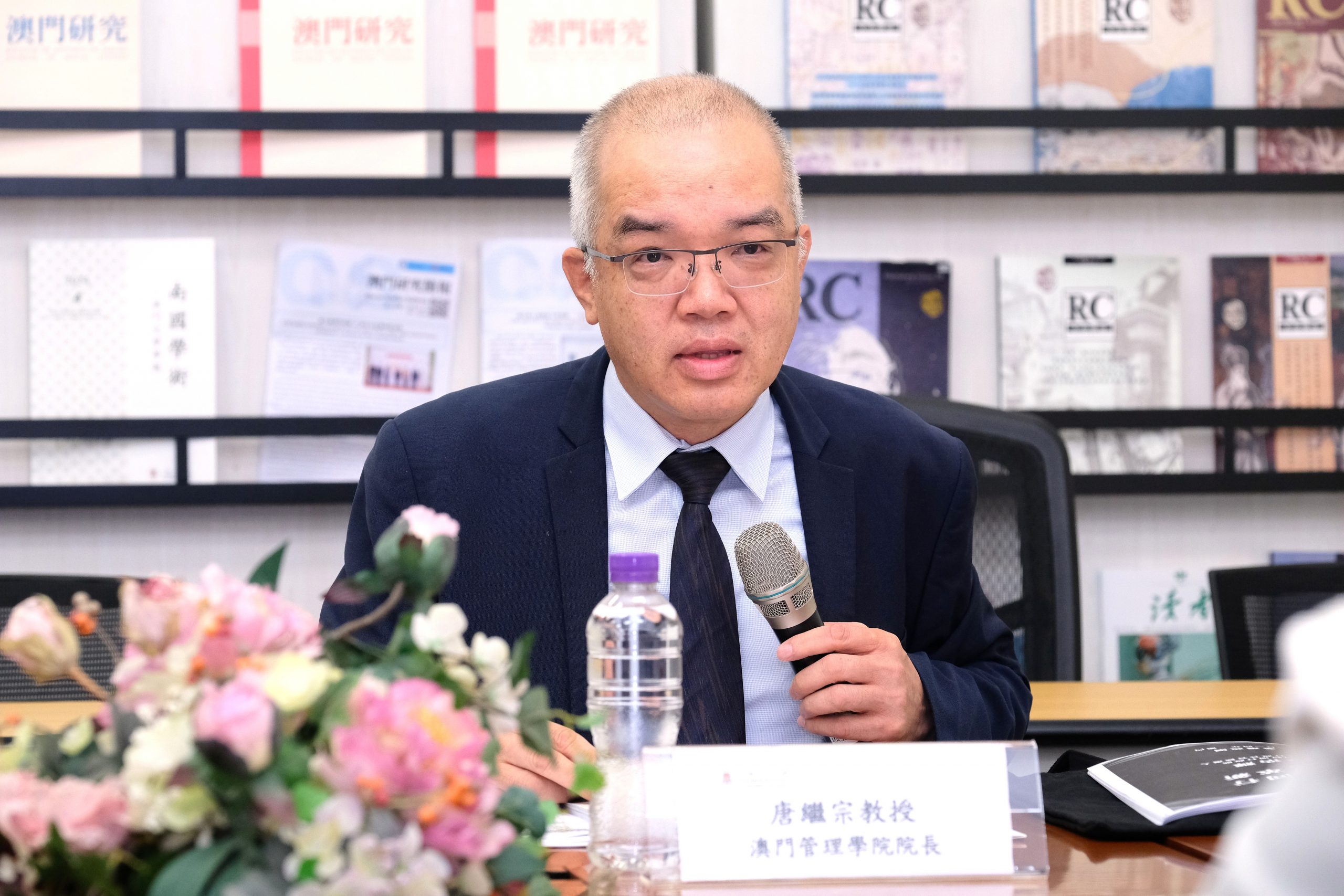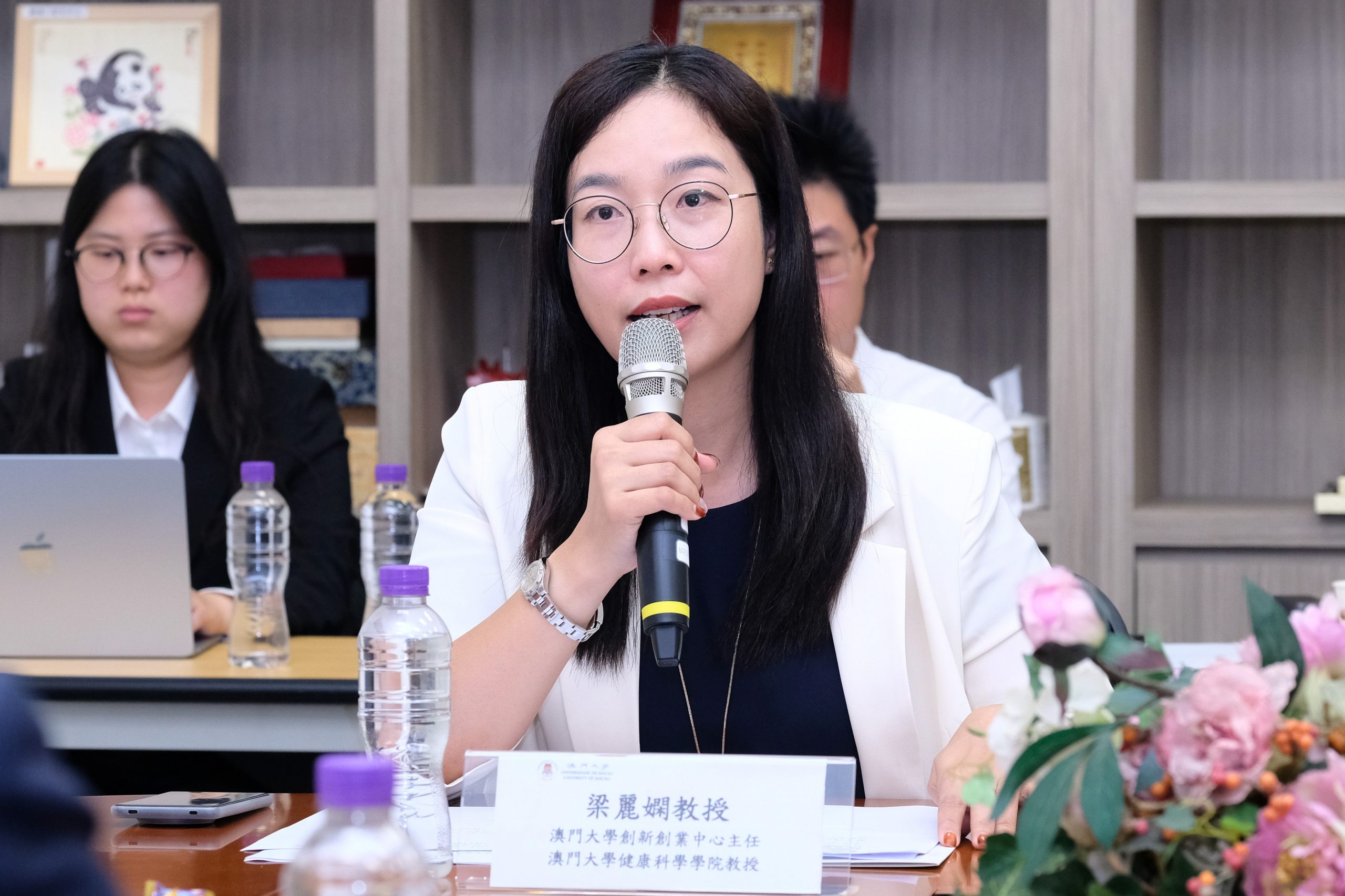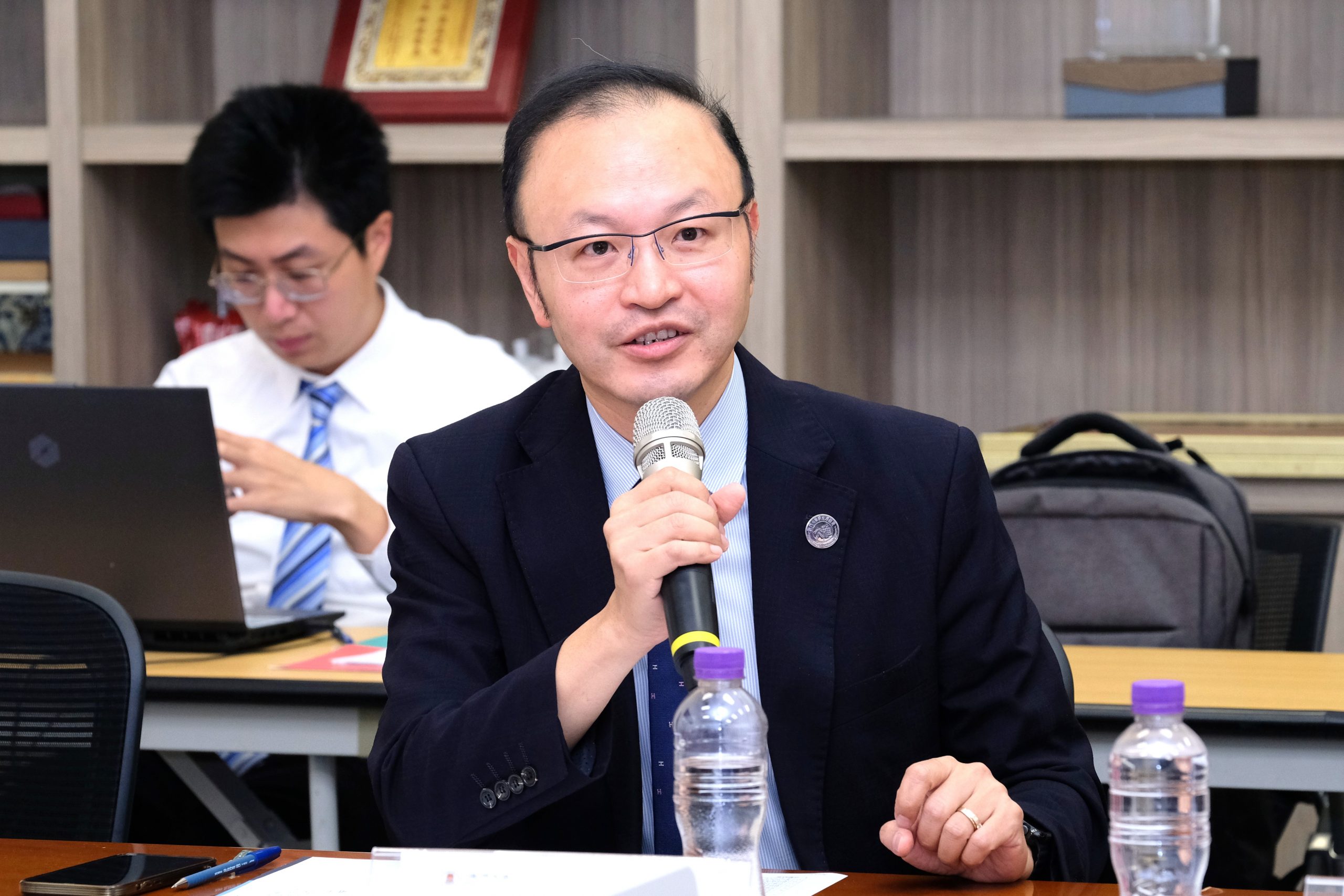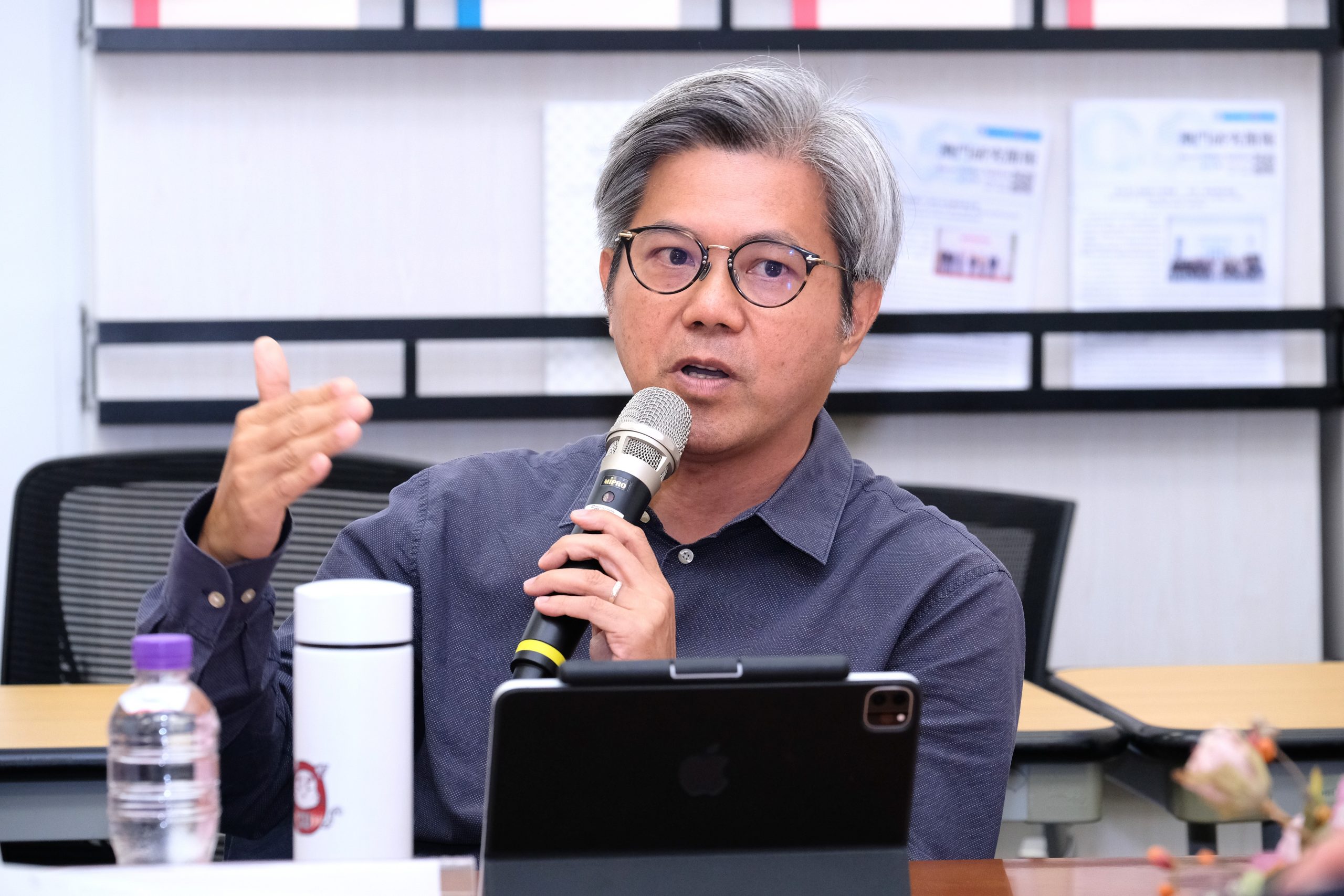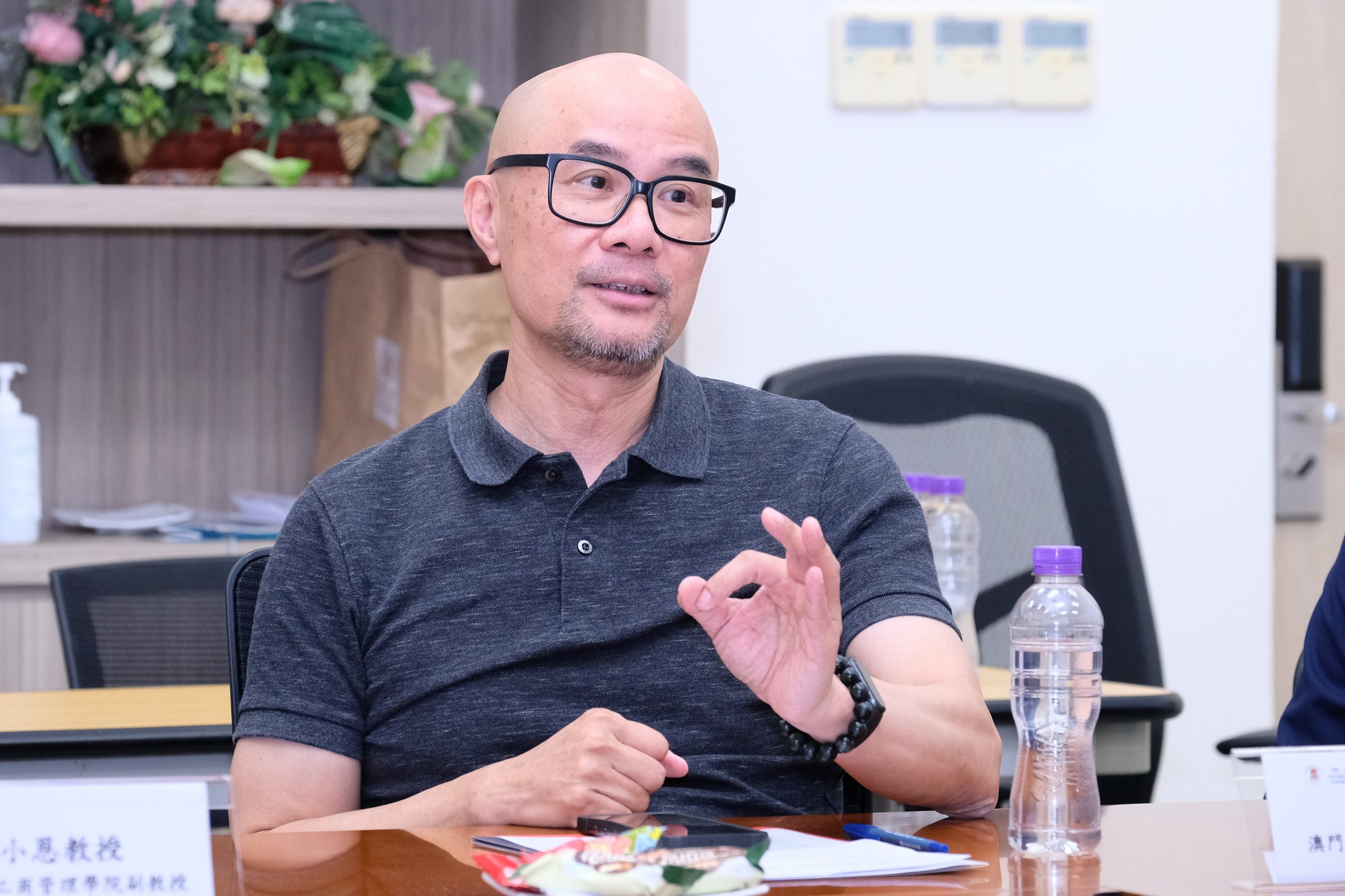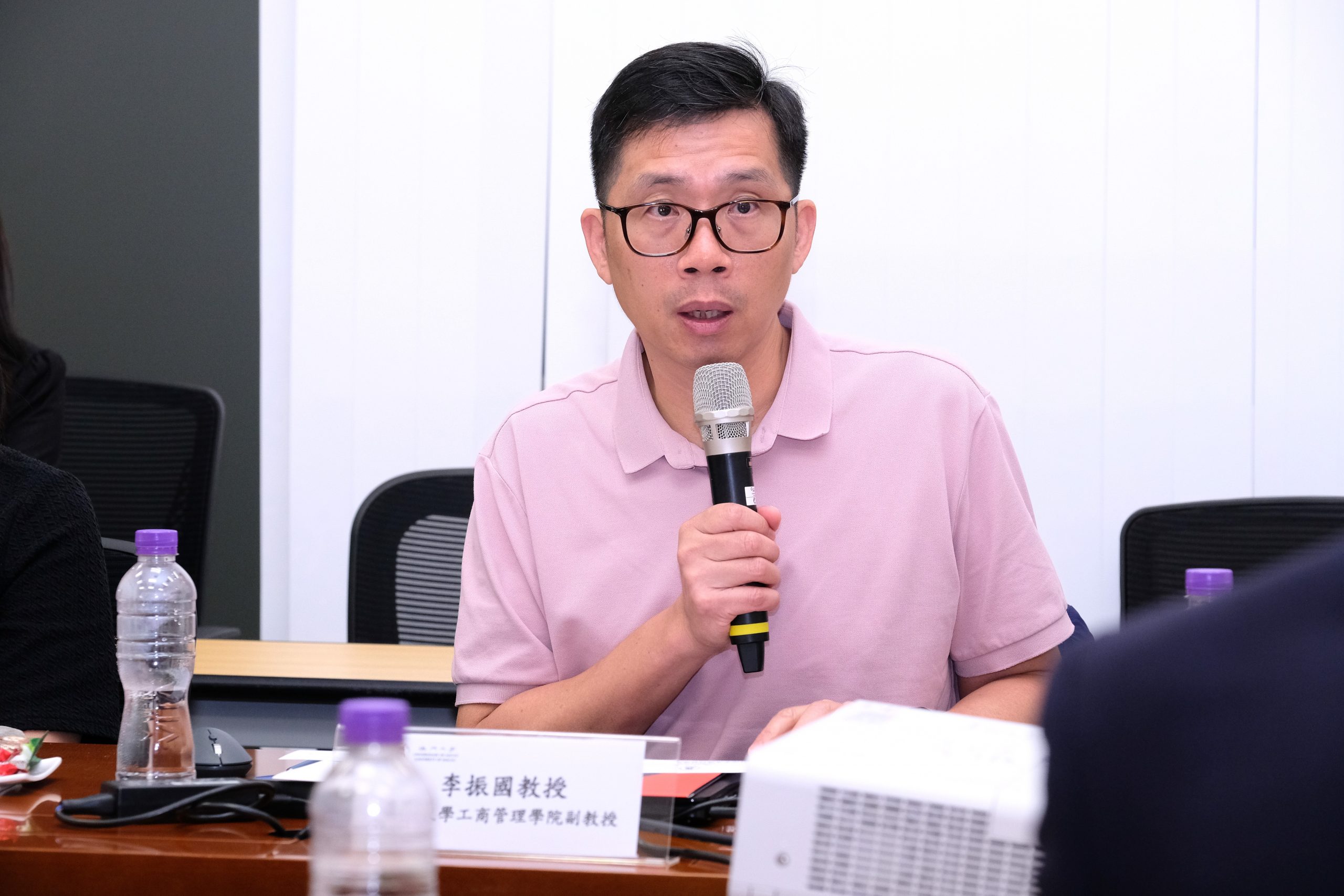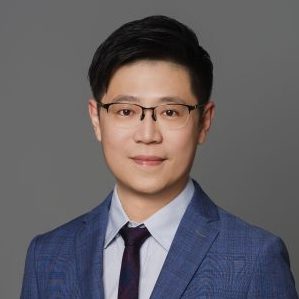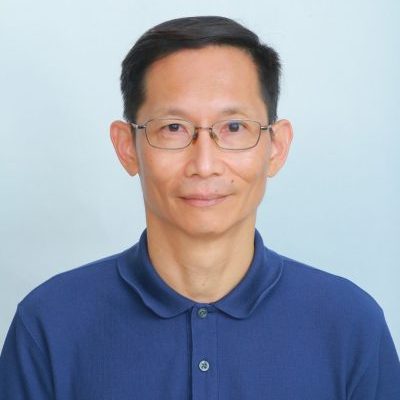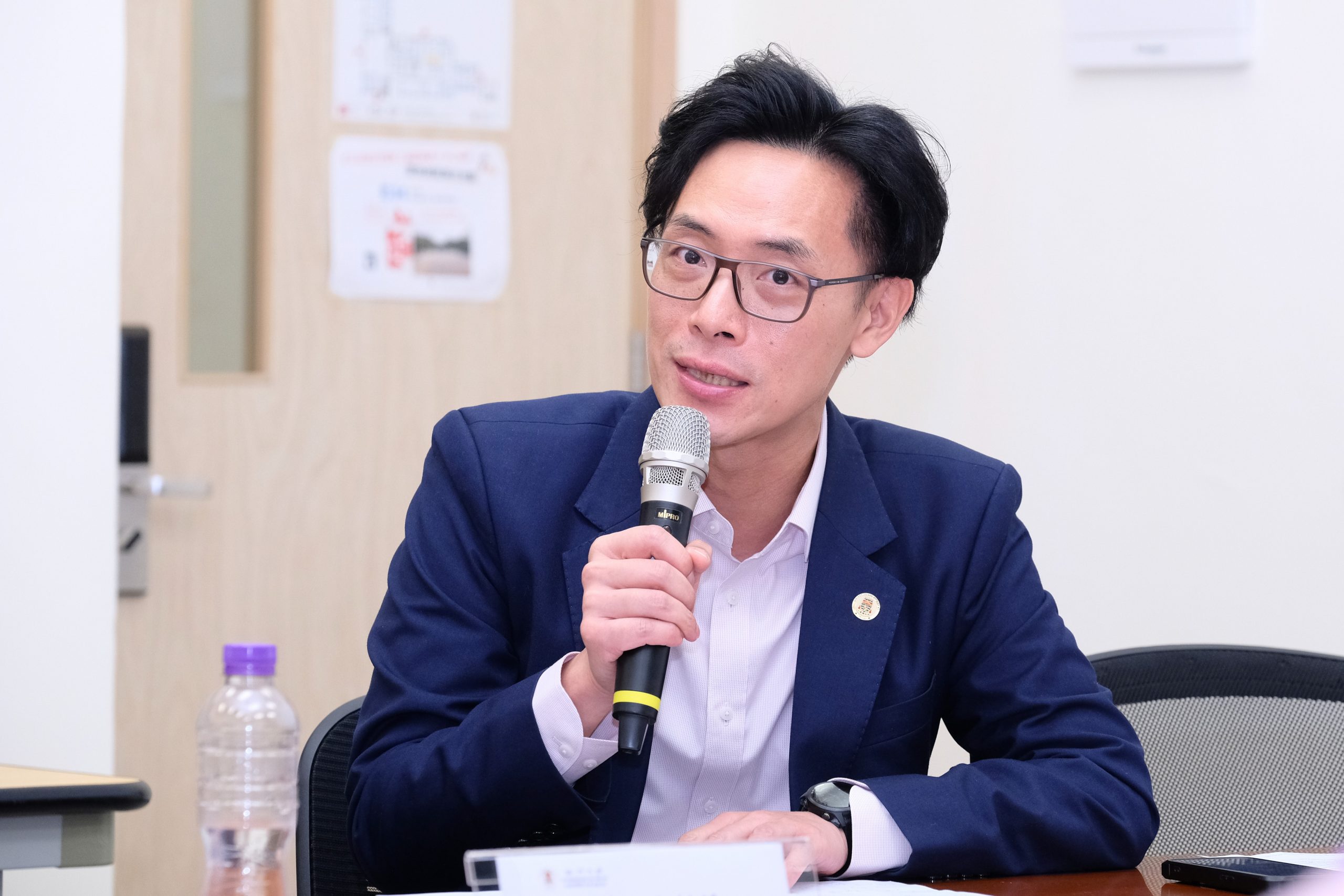Chaired by Agnes Lam Iok Fong, director of Centre for Macau Studies, the seminar brought together experts and scholars focused on discussing national development strategies to enhance the competitiveness of various industries in Macau and optimize transportation and tourism support, promoting youth entrepreneurship and the development of cultural and creative industries, as well as strengthening civil servant training and community economic development. Experts emphasized that, through targeted policy measures, synergistic mechanisms, and talent attraction and training, the SAR government can more effectively promote industrial development, enhance social vitality, and improve residents’ quality of life. These efforts will lay a solid foundation for the diverse economic and social development of Macao in the future.
Tong Kai Chung, president of Macau Institute of Management, proposed that Macao SAR should leverage the advantages of the mainland’s unilateral visa-free policy to enhance the competitiveness of its tourism industry and expand the international traveller market. Regarding talent recruitment and community economic development, Tong suggests drawing from the experiences of mainland cities to enhance policy-making.
According to Elaine Leung Lai Han, head of Centre for Innovation and Entrepreneurship and Professor of Faculty of Health Science at UM, it is noted that although Macao’s research capabilities are continuously improving, the transformation of research results into practical applications requires enhancement. To address this, she suggests that the government establish the “patient capital” in collaboration with investment institutions to provide capital for startups in the “1 to 10” phase. Additionally, she emphasized the importance of cultivating interdisciplinary talents with both technical and business backgrounds, optimizing talent recruitment policies, and clarifying the qualification standards and support measures for innovation and entrepreneurial talents. Finally, she advocated for strengthening collaboration between schools and the business sector, drawing on the model of joint laboratories from Zhuhai UM Science & Technology Research Institute, to promote a postdoctoral joint training program and enhance the integration of industry, academia, and research, thereby providing talent support for Macao’s innovation-driven development.
Alfred Wong Seng Fat, associate professor of Faculty of Science and Technology at UM, focused on the application of artificial intelligence (AI) technology. He suggested using AI to simplify public services, such as accurately analyzing community welfare needs, optimizing resource allocation, and providing emotional support for social workers and assisting their cases.
Angus Lam Chi Chiu, associate professor of Faculty of Science and Technology at UM, discussed urban planning, transportation, and regional integration. He pointed out that the proportion of commercial land is too low in Zone A, and that public transport and commercial facilities must be strengthened to avoid repeating the initial inconvenience experienced in Seac Pai Van public housing estate. He also voiced his support for extending the LRT East Line to the Barrier Gate and Qingmao checkpoints. He also cited data to show the situation of rapid increase in the number of Macau-registered vehicles. He suggested optimizing customs technology and expanding the “Northbound Travel for Macao Vehicles” policy to the Hengqin port to promote integration within the Greater Bay Area.
Ricardo Siu Chi Sen, associate professor of Faculty of Business Administration at UM, put forward three policy recommendations. He suggests that the government should provide clearer positioning and phased arrangements for future major projects. Second, he recommends integrating landmark sites and resources within the Macao peninsula’s historic and cultural districts to create a pedestrian tourism economic zone, and improving community connectivity through high-quality pedestrian bridges and related facilities. Third, he advises a systematic review and evaluation of community economic initiatives, clarifying the effectiveness of each policy.
Henry Lei Chun Kwok, associate professor of Faculty of Business Administration at UM, emphasized that while transforming to high-tech industries is important, such industrial development is a medium- to long-term strategy, and its impact on local employment is indirect and gradual. Secondly, he believes that while promoting technological research and development and modern finance, the government should also introduce short-term measures to support small and medium-sized enterprises and stimulate social consumption. Finally, he acknowledged the positive effect of the government’s new round of “Community Consumption Grand Prize” in boosting the economy, and suggested that similar policies should be continued next year.
According to Amy So Siu Ian, associate professor of Faculty of Business Administration at UM, suggests integrating pop culture into sports by inviting K-pop stars to participate in racing events, thereby attracting young international tourists. Second, create unique international landmarks instead of copying elements from other places. Third, nurture talent in the creative industries by offering practical opportunities through summer training programs, market pilot projects, and artist residencies.
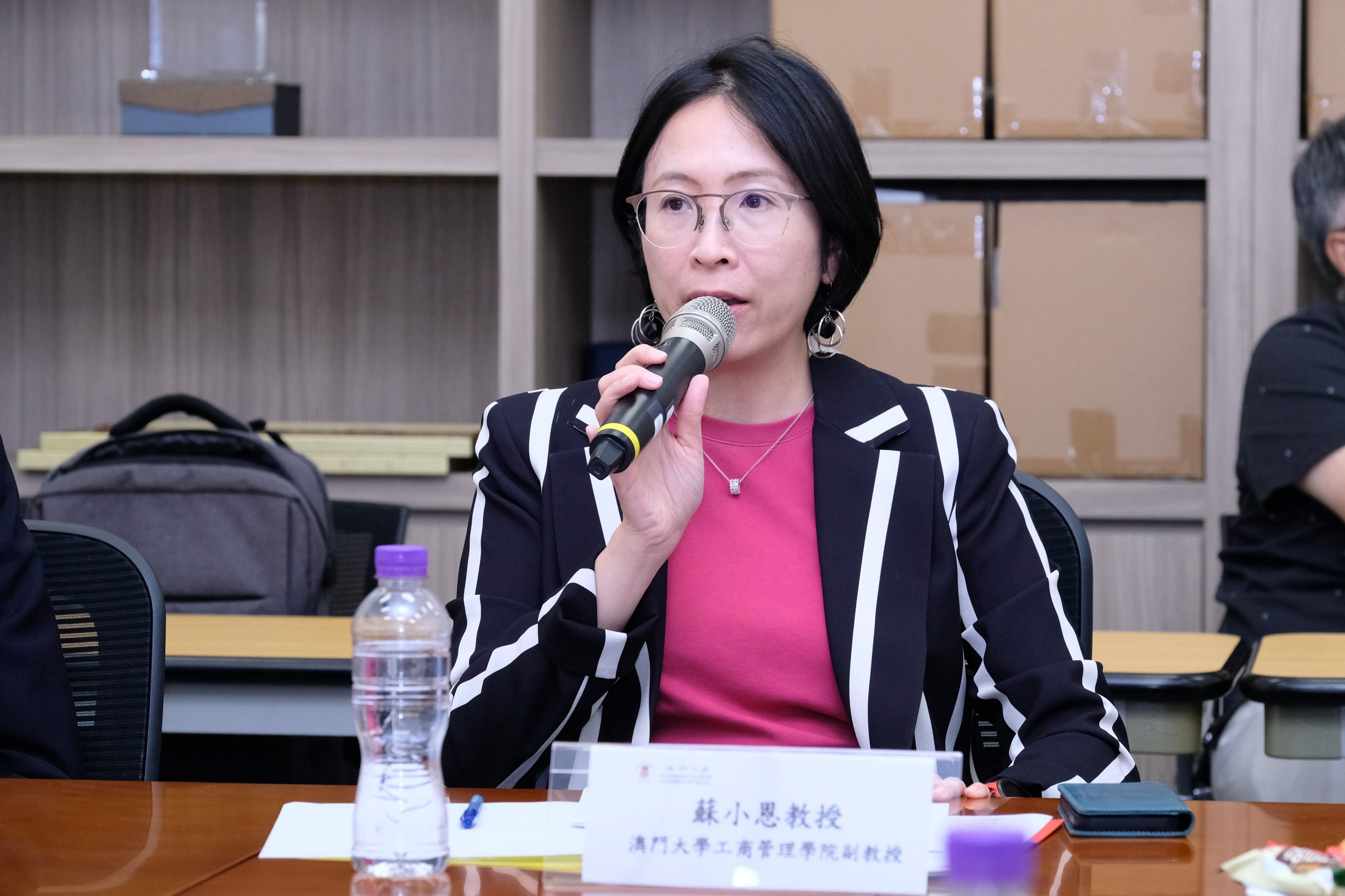
Lawrence Fong Hoc Nang, associate professor of Faculty of Business Administration at UM, noted that Macao’s limited land and human resources mean that the development various economic sectors must be more precise. Secondly, with a clear global trend of population aging, seniors possess strong spending power and a high demand for health products and services, making them a potential source of high-quality tourists for Macao. Finally, he suggests that policies should actively develop the silver economy, integrate it with the development of traditional Chinese medicine and health industries, and promote the research and application of smart aging products, thereby attracting local small and medium-sized tech enterprises to invest resources.
Kwan Fung, assistant professor of Faculty of Social Sciences at UM, mentioned that the current Macao tourism market lacks sufficient diversification in its tourist structure. To address this, he offers three suggestions: First, develop differentiated marketing strategies based on the unique spending habits and preferences of tourists from various regions. Second, deepen cooperation within the Greater Bay Area by integrating cultural and tourism resources to jointly create international “multi-destination” travel routes. Finally, actively tap into high-potential visitor markets by providing innovative products and services to meet emerging demands.
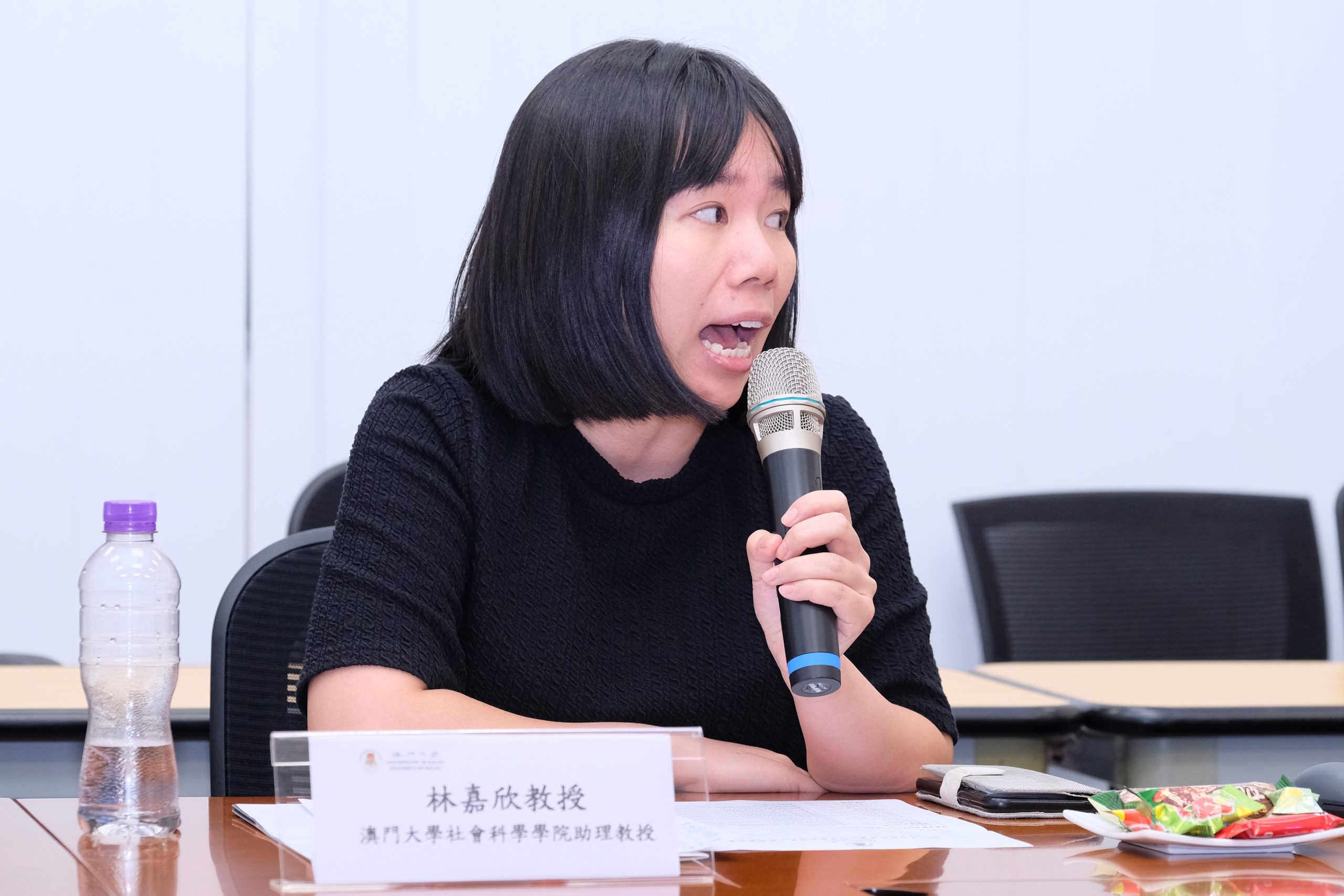
Lam Ka Ian, assistant professor of Faculty of Social Sciences at UM, affirmed that the government has strengthened performance evaluations in recent years, placing greater emphasis on service quality and results. She also pointed out that civil servant training needs a comprehensive update, including awareness of national security, mainland affairs, and international knowledge. In addition, regarding culture, creative industries, and youth development, she believes young people should actively participate in national-level projects and seek international opportunities, which can promote industry diversification and reduce dependence on public resources.
Elvo Sou Kuai Long, assistant professor (by courtesy) of Faculty of Social Sciences at UM, commended the government for establishing mental and physical health support training centers and a 24-hour psychological hotline, but pointed out that some services overlap, potentially leading to resource waste or inadequate support. Second, he suggested creating a certification system for psychological counsellors to enhance professionalism and service accessibility.
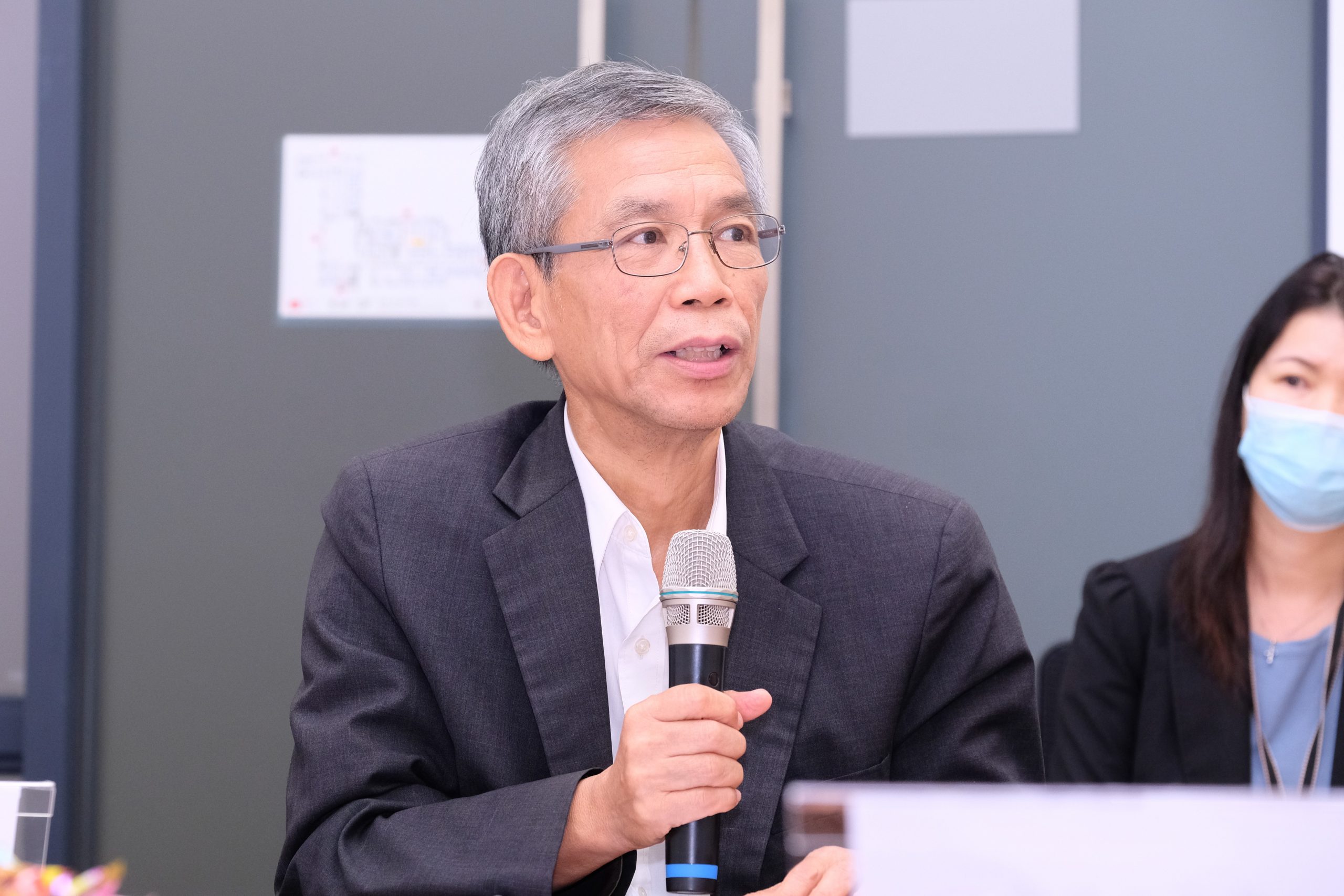
Paul Pun Chi Meng, executive director of Caritas Macau, put forward four targeted and concrete suggestions. First, he proposed to improve the convenience of tourism and public services, such as adding some thoughtful services include providing luggage storage, umbrella borrowing, drinking water stations, and offering 15 minutes of free parking in public lots to facilitate brief errands…etc. Second, he initiated a method that combines rooted businesses with youth projects to share resources, helping young people accumulate experience. Third, in the area of education and youth, he suggested that the government provides fund to university students to visit overseas communities to broaden their international perspectives. Fourth, he emphasized the need to strengthen support services for caregivers and subsidize families of elderly individuals in private care facilities to alleviate the caregiving burden and improve overall social well-being.

